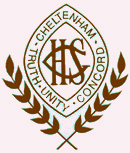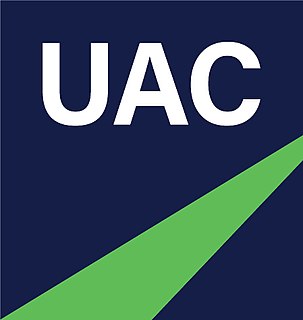Related Research Articles
The Higher School Certificate (HSC) is the credential awarded to secondary school students who successfully complete senior high school level studies in New South Wales and some ACT schools in Australia, as well as some international schools in Singapore, Malaysia, China, Papua New Guinea and Tonga. It was first introduced in 1967, with the last major revision coming into effect in 2019. It is currently developed and managed by the NSW Education Standards Authority (NESA).
The Universities Admission Index (UAI) was used in New South Wales and the Australian Capital Territory, Australia, as the primary criterion for entry into most undergraduate-entry university programs. It was a number between 0 and 100, occurring in increments of 0.05 and indicating the rounded percentile rank of a student who undertook the Higher School Certificate or ACT Year 12 Certificate with a valid quantity and combination of units of study. It was replaced in N.S.W with the Australian Tertiary Admission Rank (ATAR) in 2009. Prior to the UAI the ACT used its own Tertiary Entrance Rank

Merewether High School is a government-funded co-educational academically selective secondary day school, located in the suburb of Broadmeadow in the city of Newcastle, in the Lower Hunter Region of New South Wales, Australia. It was established in 1977 following the merger of Newcastle Technical High School and Cooks Hill Girls High School. The school is named in honour of Edward Christopher Merewether, a prominent businessman and civil servant in the Colony of New South Wales who later became the Superintendent of the Australian Agricultural Company in Newcastle.
Industrial arts is an educational program that features the fabrication of objects in wood or metal using a variety of hand, power, or machine tools. Industrial Arts are commonly referred to as Technology Education. It may include small engine repair and automobile maintenance, and all programs usually cover technical drawing as part of the curricula. As an educational term, industrial arts dates from 1904 when Charles R. Richards of Teachers College, Columbia University, New York suggested it to replace manual training.

Wyndham College is a public senior secondary school located at Nirimba Fields, New South Wales, Australia.
Caringbah High School is a government-funded co-educational academically selective secondary day school, located in Caringbah, in the Sutherland Shire of Sydney, New South Wales, Australia. The school was opened in 1960 as a co-educational high school and was nominated to become selective in 1989, over the neighbouring Port Hacking High. As of 2020 approximately 912 students were enrolled.

Cheltenham Girls High School, is a public, comprehensive, high school for girls, located in Cheltenham, a suburb on the Upper North Shore of Sydney, New South Wales, Australia.
Mathematics education in Australia varies significantly between states, especially at the upper secondary level.

St George Christian School is a multi-campus independent non-denominational Christian co-educational primary and secondary day school, located in Hurstville and Sans Souci, both suburbs of southern Sydney, in the St George area of New South Wales, Australia.
English is the only compulsory subject for the award of the Higher School Certificate at the end of secondary schooling in New South Wales, Australia. Marks gained in at least two units of English must also be included in the calculation of the Australian Tertiary Admission Rank (ATAR) used to determine entry to university. Students must study one of the following courses:
Bored of Studies is an Australian website targeted at students in New South Wales and Victoria. It is prominent among students for its Student Assessment Modeller that calculates approximate Australian Tertiary Admission Rank or Equivalent National Tertiary Entrance Rank results, and for hosting study notes for the New South Wales Higher School Certificate courses. An extensive student community has evolved around its forum, which is frequented by school students, teachers and a growing number of university students. The site's name is a parody of the NSW Board of Studies, the former governing organisation for the Higher School Certificate (HSC).

Taree High School is a government-funded co-educational comprehensive secondary day school in Taree, a regional centre of the Mid North Coast region of New South Wales, Australia.

The Universities Admissions Centre is an organisation that processes applications for admission to tertiary education courses, mainly at institutions in New South Wales and the Australian Capital Territory. A not-for-profit company incorporated in July 1995, it has offices located at Sydney Olympic Park.
The Senior Secondary Certificate of Education (SSCE) is the graduation certificate awarded to most students in Australian high schools, and is equivalent to the Advance Placement in North America and the GCE A-Levels of the United Kingdom. Students completing the SSCE are usually aged 16 to 18 and study full-time for two years. In some states adults may gain the certificate through a Technical and Further Education college or other provider.
Software Design and Development (SDD) is the study of designing and developing software. SDD is also a subject offered to senior high school students in Australia in university entrance exams such as the Higher School Certificate (HSC) and the Victorian Certificate of Education (VCE).

The Australian Tertiary Admission Rank (ATAR) is the primary criterion for domestic student entry into undergraduate courses in Australian public universities. It was gradually introduced to most states and territories in 2009–10 and has since replaced the Universities Admission Index, Equivalent National Tertiary Entrance Rank, Tertiary Entrance Rank and the Overall Position. It is a percentile ranking between 0.00 and 99.95 which shows student’s relative position compared to all other students in the age group of 16 to 20 years for that year. Though ATARs are calculated independently by each state, they are all considered equivalent. Since some students quit studying early or do not qualify for an ATAR in their state, the average ATAR amongst students who achieve one is 70.00. Admission to universities is granted based on the "selection rank" calculated by each university based on its own unique criteria. Selection ranks are a combination of ATAR and additional points based on universities' own criteria used for selecting students such as a "personal statement, a questionnaire, a portfolio of work, an audition, an interview or a test". Some universities also provide additional points on the basis of disadvantage such as for rural or Indigenous Australian applicants.
A Bachelor of Science in Information Technology,, is a bachelor's degree awarded for an undergraduate program in the information technology. The degree is normally required in order to work in the Information technology industry.
Parkes High School is a government-funded co-educational comprehensive secondary day school, located in Parkes, in the Central West region of New South Wales, Australia.
The Higher School Certificate (HSC) Economics course is a 2-unit elective course undertaken by students in New South Wales across their final 2 years of schooling. The course includes a preliminary program for study across 3 terms of Year 11, and an HSC course for study over 4 terms of Year 12. In 2012, 5,262 students sat the HSC Economics external examination, with 12.5% receiving the top performance indicator of a Band 6. The course aims to take a "problems and issues approach" to the teaching and learning of economics, with a particular emphasis on the economic problems and issues experienced by individuals and society.

St James Lutheran College is an independent, co-educational Kindergarten to Year 12 Lutheran College under the Lutheran Church of Australia. The school is located in Urraween, a suburb of Hervey Bay, South East Queensland, Australia. St James Lutheran College currently caters for approximately 800 students, after opening in 2003 as one of the newest Christian schools on the Fraser Coast.
References
- ↑ Information Processes and Technology Stage 6 Syllabus (PDF). Board of Studies. June 2009. ISBN 978-1-74147-719-1 . Retrieved 26 February 2013.
- ↑ "Information Processes and Technology Stage 6 Syllabus" (PDF). NSW Education Standards Authority . Board of Studies. June 2009. Retrieved 2 July 2022.
- ↑ "Information Processing & Technology Senior Syllabus" (PDF). QSA. Archived from the original (PDF) on 16 December 2007.